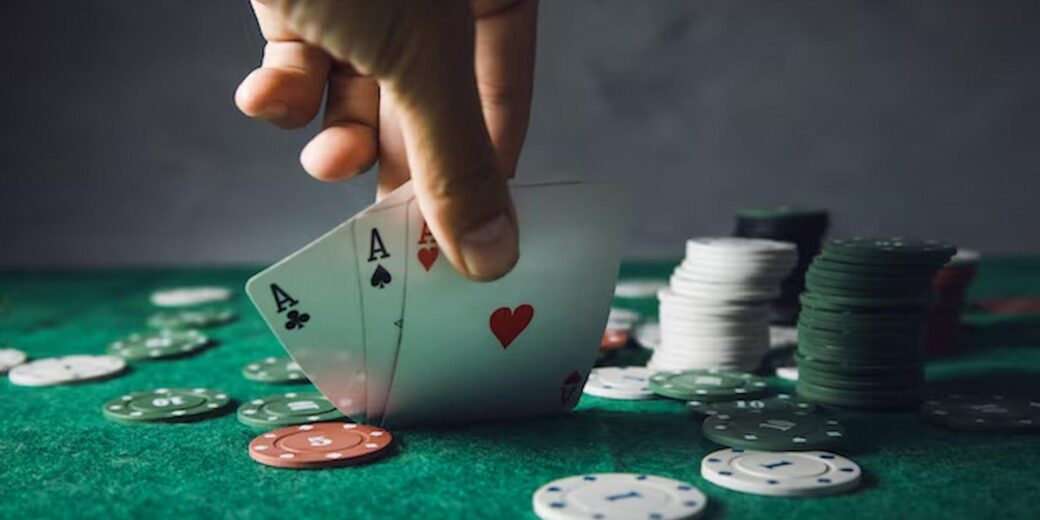How to Build a Winning Poker Mindset Quickly

Want to level up your poker game? Learn how to build a winning mindset quickly with proven focus, discipline, and resilience strategies. Dominate the table today!
Poker is much more than just a game of cards. It’s a battle of wits, strategy, and mental fortitude. While technical skills and game knowledge are essential, the right mindset separates the amateurs from the pros. Building a winning poker mindset doesn’t require years of trial and error. With the right strategies, you can develop the mental resilience, focus, and confidence needed to succeed in poker—quickly and effectively. This guide will walk you through the steps to master the cognitive aspects of poker, helping you achieve your goals at the table.
1. The Importance of Mindset in Poker
To win consistently in poker, you must recognize that mindset plays a pivotal role in performance. Unlike many other games, poker involves managing uncertainty, pressure, and luck.
A strong poker mindset allows players to:
Stay calm during losing streaks.
Avoid emotional decision-making (tilting).
Focus on long-term profitability rather than short-term outcomes.
By understanding that variance is a natural part of poker, you can stop blaming bad luck and focus on the factors you can control. This mental shift is the first step toward building a winning mindset. Studies suggest that players with a positive mindset perform 20-30% better over time than those who don’t.
2. Cultivate Emotional Discipline
Emotional discipline is controlling one’s feelings, especially during high-stress moments. Poker can evoke intense emotions, from frustration after a bad beat to overconfidence after a big win.
Here’s how to build emotional discipline:
Practice mindfulness to stay present and calm.
Take breaks during the game to reset your focus.
Avoid making decisions based on anger or excitement.
For instance, if you’re dealt a losing hand after an intense streak, recognize the emotion, but don’t let it dictate your next move. Over time, disciplined players win more because they think logically instead of emotionally. Remember, poker rewards patience and rationality, not impulsive actions.
3. Master the Art of Focus and Concentration
In poker, distractions can cost you money. Maintaining laser-sharp focus is critical, whether you’re playing live or online. Even minor lapses in concentration can lead to costly mistakes.
Strategies to improve focus:
Eliminate distractions, such as your phone or noisy environments.
Use focus-building exercises before the game, like deep breathing or short meditation.
Set specific goals for each session to give yourself a purpose.
Research shows that players with high concentration levels make 40% fewer mistakes than those without. You can make better decisions and spot patterns in your opponents’ strategies by training your brain to stay in the moment.
4. Develop a Growth Mindset
A growth mindset is the belief that you can improve your skills through effort, practice, and learning. In poker, this means embracing challenges and viewing mistakes as growth opportunities.
Here’s how to develop a growth mindset:
Review your games regularly to identify areas for improvement.
Study poker strategy books, videos, or online courses.
Seek feedback from more experienced players.
Players adopting a growth mindset are more likely to succeed because they constantly evolve. They don’t dwell on losses but analyze what went wrong and how they can improve next time. This proactive approach leads to long-term success.
5. Embrace Variance and Manage Expectations
Variance is an inevitable part of online poker game. Even the best players experience losing streaks. The key is to accept this reality and manage your expectations accordingly.
Tips for handling variance:
Focus on making the right decisions rather than the outcomes.
Keep a record of your wins and losses to see the bigger picture.
Use a proper bankroll management strategy to mitigate risks.
For example, a player who understands variance won’t be discouraged by a series of bad beats. Instead, they’ll stay focused, knowing that the odds will even out over time. This resilience separates consistent winners from frustrated players who give up too soon.
6. Practice Self-Care to Boost Mental Performance
Your physical and mental health significantly impact your poker mindset. Neglecting self-care can lead to fatigue, poor decisions, and burnout.
Key self-care habits for poker players:
Get at least 7-8 hours of sleep to maintain mental clarity.
Exercise regularly to reduce stress and improve focus.
Eat a balanced diet to fuel your brain during long sessions.
Studies have shown that players prioritizing self-care make 25% better decisions. A healthy mind and body enable players to think, adapt quickly, and maintain stamina during marathon poker sessions.
Conclusion
With the right approach, you can quickly build a winning poker mindset. You can significantly enhance your poker performance by understanding the importance of mindset, cultivating emotional discipline, mastering focus, developing a growth mindset, embracing variance, and practicing self-care. Remember, poker is as much a mental game as a technical one. Approach each game with patience, resilience, and a commitment to continuous improvement, and you’ll soon find yourself at the top of your game.
